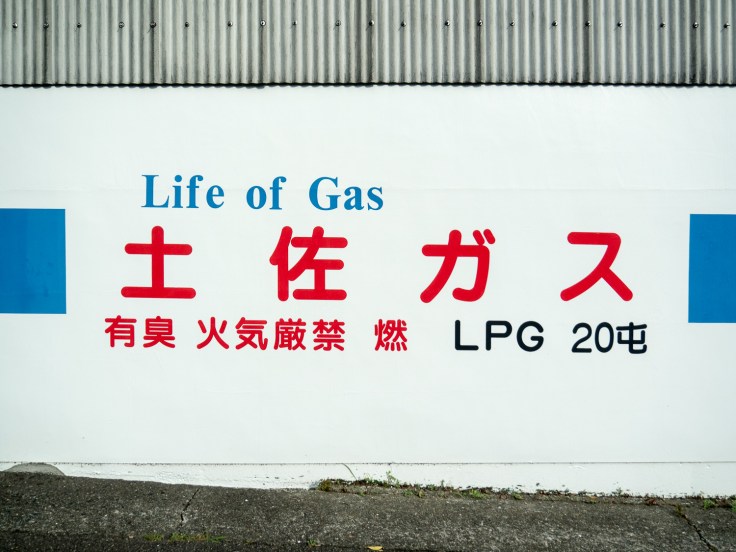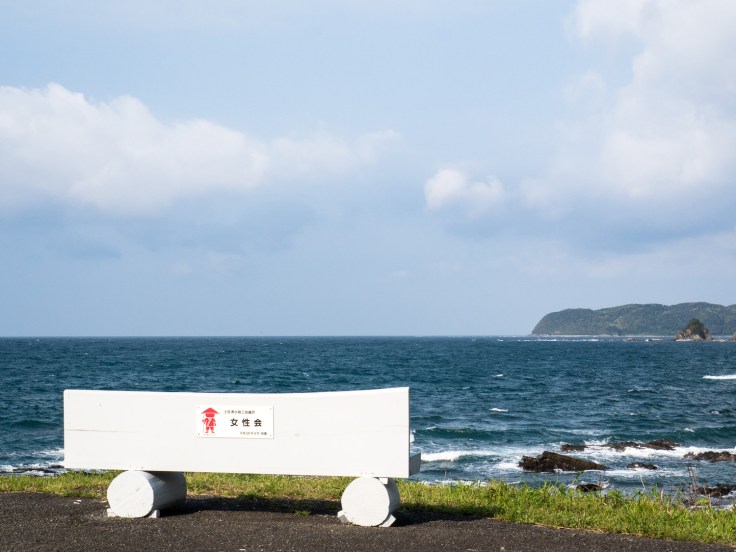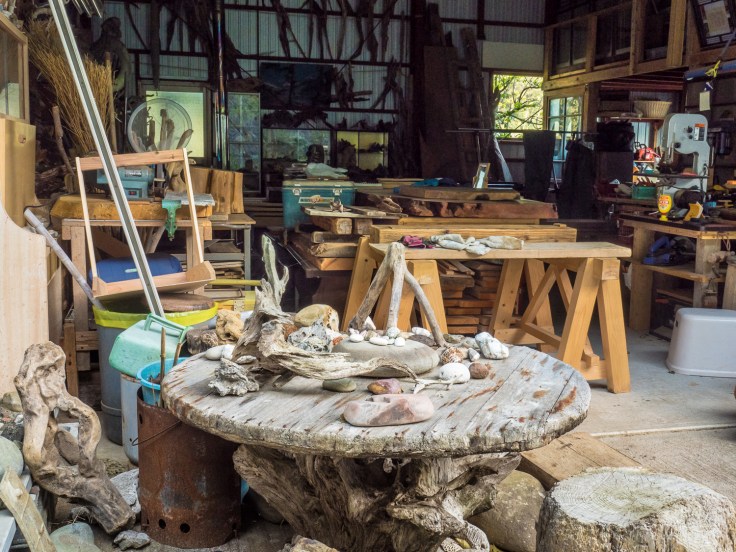April 15, 2017
The hosts at Seiryu, our well-worn lodging in Tosa-Shimizu, sent us off for the day with a wonderful Japanese breakfast. A good thing considering this will be a long 39-kilometre day of walking.
We will be traversing a particularly remote part of Shikoku. Accommodations are both rare and well-booked. Tonight’s accommodation took perseverance to secure and required the assistance of an English-speaking women at the tourist information centre, way back in Kochi City.
We watched intently and hopefully as she phoned various minshuku and ryokan lodgings near our preferred destination, Mihari Village. We listened to the lengthy, rapid fire Japanese conversations, not knowing what was being said until, ultimately, she would disconnect and, with a sad shake of her head, say “so sorry…” It took several calls, several long discussions before the host at Shimuzugawa-sō found room for us.
It was such a typical Japanese offering of helpfulness that this young woman would spend so much time and effort to find us a room at the inn. On the Henro-michi, there is a concept of osettai, where gifts are cheerfully given to pilgrims because a pilgrim is considered the embodiment of Kōbō Daishi. Gail and I have received many such osetttai along the Henro path. Little doilies, big bags of oranges and pricey grapes. Sometimes a complete lunch. But there is a deeper sense of giving in the Japanese soul that turns up in unexpected ways. Such as our friend at the Kochi tourist centre.
Our path continues down the sun-kissed, rugged Pacific coastline before heading inland, following a narrow road northward through dense forests. Towns or villages are rare sightings. Traffic is sparse. There is just the two of us, gliding through the trees as the Soro River trickles alongside.
We emerge from the woods at Mihari Village, not far from our destination for the night but in need of a break and something refreshing after a long day on the trail. A small grocery appears as we pass through the village, replete with the usual assortment of vending machines just outside its doors. Nothing really appeals in the selection of sugary beverages. So we head into the dark interior of the small store and to the cooler, stocked with a variety of drinks.
The shopkeeper, an elderly women, watches on, intrigued by her two Henro customers dressed the part in traditional white shirts and conical hats. Eventually we settle on a bottle of Pocari Sweat, the oddly-named electrolyte-replacement beverage so sought after by pilgrims. I reach for my wallet but, immediately our shop-keeper puts up her hands, accompanied by a few sentences that we have no chance of deciphering. But the meaning is clear. This is an osettai. Payment will not be accepted.
Receiving an osettai is an awkward exchange for two westerners used to paying for and paying back. Yet it is so endearing that this stranger, who will know us only for a few minutes, would offer us a gift. Is the power of belief in Kōbō Daishi that strong? Or is this just another kind-hearted gesture inherent to the Japanese soul? Likely both.
Shimuzugawa-sō is well outside Mihara Village, nestled in the bush just off the highway. The inn itself is well suited to its scrubby terrain, more like a bunkhouse for work crews than a guesthouse. Our creaky host summons us down a long corridor to a room. The single futon resting on a steel bed frame didn’t seem promising. It took a few rounds of Japanese-English misinterpretations to figure out that Gail and I would have separate rooms, across the corridors from each other.
But that would have to wait as our host quickly ushers us further down the hallway to the bath room and its small wood-lined tub set into the floor. It’s a quaint, cozy affair, homemade no doubt, but it is questionable how clean we are getting in this dark pool of hot water.
We head to the end of the corridor and the bunkhouse dining area, where the food has already been laid out. Where it came from, who cooked it – these would remain mysteries. As would the whereabouts of our host, last spotted before bathing. And other guests? Nowhere to be seen. It was shaping up to be an interesting night.
There was little else to do that evening with no television or wifi. Just brush our teeth at the hallway sink, our eyes wandering down to the drain clogged with cigarette butts and up to the shelf where a brush still bristled with someone’s hair. With that image in our minds, we head back to our separate rooms. It’s an early night, but welcome after a rigorous day of walking.
Is this the place our gracious friend in the Kochi tourism centre worked so hard to book on our behalf? I think she would be surprised. To Gail and me, it’s just one more curious adventure.




























Thanks Sandra! Gail often gets trapped in the role of roving gourmet, thanks to the guy across the table with a camera in his hand.
I’m always excited to see a post from walkclickmake. You’re a wonderful writer and photographer, David. All Gail ever seems to do is eat!!!